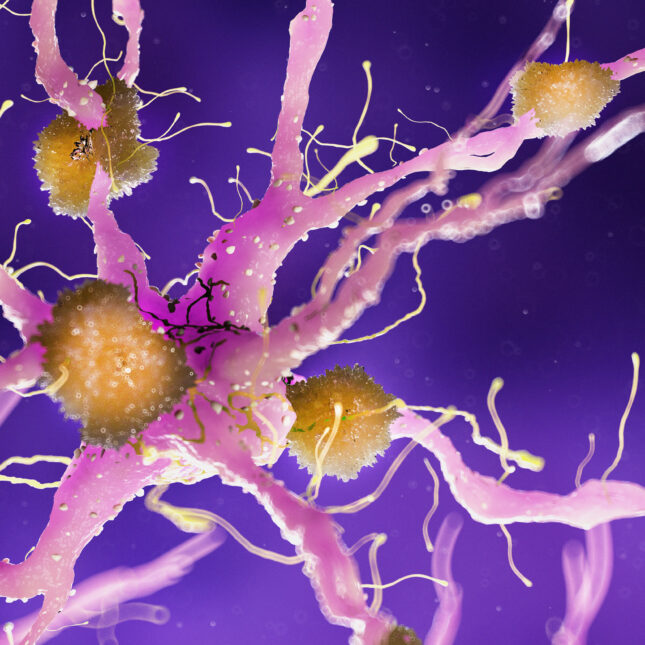
For members of a large extended Colombian family, an early Alzheimer’s diagnosis is practically a grim guarantee. But new research further supports the idea that a rare genetic mutation can delay the devastating disease’s onset.
An international team of researchers identified 27 individuals within this extended family who carried both a genetic variant that guaranteed they’d develop Alzheimer’s and a single copy of the so-called Christchurch mutation. They found that people with a single copy of this rare mutation, or heterozygotes, developed mild cognitive impairment at median ages of 52 and dementia at 54, while members of this family who were destined to develop Alzheimer’s and lacked the Christchurch mutation showed signs of cognitive impairment and dementia at 47 and 50, respectively.
The authors also found that those with the Christchurch mutation had plenty of amyloid, a protein that forms clumps or plaques in the brain associated with disease, but surprisingly little tau, a different protein that accumulates inside neurons and can cause cell death.

This article is exclusive to STAT+ subscribers
Unlock this article — plus in-depth analysis, newsletters, premium events, and networking platform access.
Already have an account? Log in
Already have an account? Log in
To submit a correction request, please visit our Contact Us page.











STAT encourages you to share your voice. We welcome your commentary, criticism, and expertise on our subscriber-only platform, STAT+ Connect